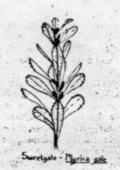| Book Reviews The Last
Algonquin, by Theodore L. Kazimiroff
Reviewed by Tom Brown Jr.
I was given this book by one of my Standard Classes, then set it
aside to read later, much later. My "to read" books fill a rather
good size bookshelf! Somehow, the book found its way with me on a
long trip, and with nothing else to read, I began to read it. I can
say now that I'm sorry I did, mainly because I couldn't put it down
nor would I do anything else that day but finish that book.
I now have placed this book on my "favorite book" shelf, next to
Emerson, Thoreau, Muir, and a host of other classics. That book
touched me deeply, as only a few other books have, bringing me to
tears in the last chapter. I guess that the old Indian in the book
and the little boy reminded me too much of Stalking Wolf and myself.
I have been so moved by this book that I am going to carry it in the
bookstore and in the newsletter. Drop everything you're doing -
work, other reading, playing, everything - and read this book. It
will be one you will never forget.
Newcombs Wildflower Guide
Reviewed by David Winston
The bounty of our Mother Earth is truly generous. Edible, useful
and medicinal plants are found in a great profusion. Their
availability could in many cases insure against starvation, prevent
or possibly cure illness, and even provide us with materials for
dying cloth, making rope, useful insect repellents and much, much
more. There is only one problem: The proper use of any plant
(especially any you intend to ingest!) is dependent upon proper
identification. Every year grim newspaper stories tell of
unfortunate and uninformed individuals who mistake Foxglove for
Comfrey, Water Hemlock for Wild Carrot, or Death Camas for Wild
Onion. These incidents need not occur. You do not have to be a
botanist or a herbalist to correctly identify a plant. All it takes
is the proper caution, a good field guide, and the patience to
distinguish the often small differences that clearly identify each
and very plant.
Over the years, literally hundreds of wildflower and edible plant
field guides have been published. Most of these are useful, but
often they are handicapped due to built-in limitations. A good
example of this would be one of the most popular wildflower guides,
Peterson's Field Guide. In this book, identification is based on the
use of the plant's flower, both color and structure. While the
system is very simple to use, if the plant you wish to identify is
not flowering, it makes certain identification difficult, if not
impossible. Botanical keys, such as Grays or Britton & Brown, are
excellent for precise identification, but their large size, weight
and complex botanical language combine to make their use a problem
for most.
Luckily, there is now a field guide that combines the best of
Peterson's (it is simple to use and compact) and at the same time,
the best of the botanical keys (it makes precise identification
possible, regardless of the plant's growth stage). This book is
Newcomb's Wildflower Guide - by Lawrence Newcomb, published by
Little, Brown & Company (Hardcover, 490 pg., $12.95).

|
In my fourteen years of gathering edible
and medicinal plants, I have used just about every imaginable field
guide and it is my opinion that Newcomb's is clearly the best. But this
is not a true test, so I gave my copy to over a dozen novice herb
gatherers. After a brief explanation on the use of a key, each team of
two was given a plant to identify, some flowering, other going to seed
and still others with just green growth. In 80% of our trials, precise
identification was made within 20 minutes and the remaining 20%, with a
few subtle hints, managed to correctly identify their plants. The most
amazing thing was that every single student felt comfortable using the
key in such a brief time. Comments on the book were unanimously
positive. The clear line drawings, the easy-to-use, 5-step key, the
simple and succinct language combined to provide the book's users with
an exciting, confusion-free experience. We all readily recommend
Newcomb's as an essential book for all outdoor enthusiasts who would
like to become better acquainted with our green brothers and sisters. |
Previous
Contents Next
|

